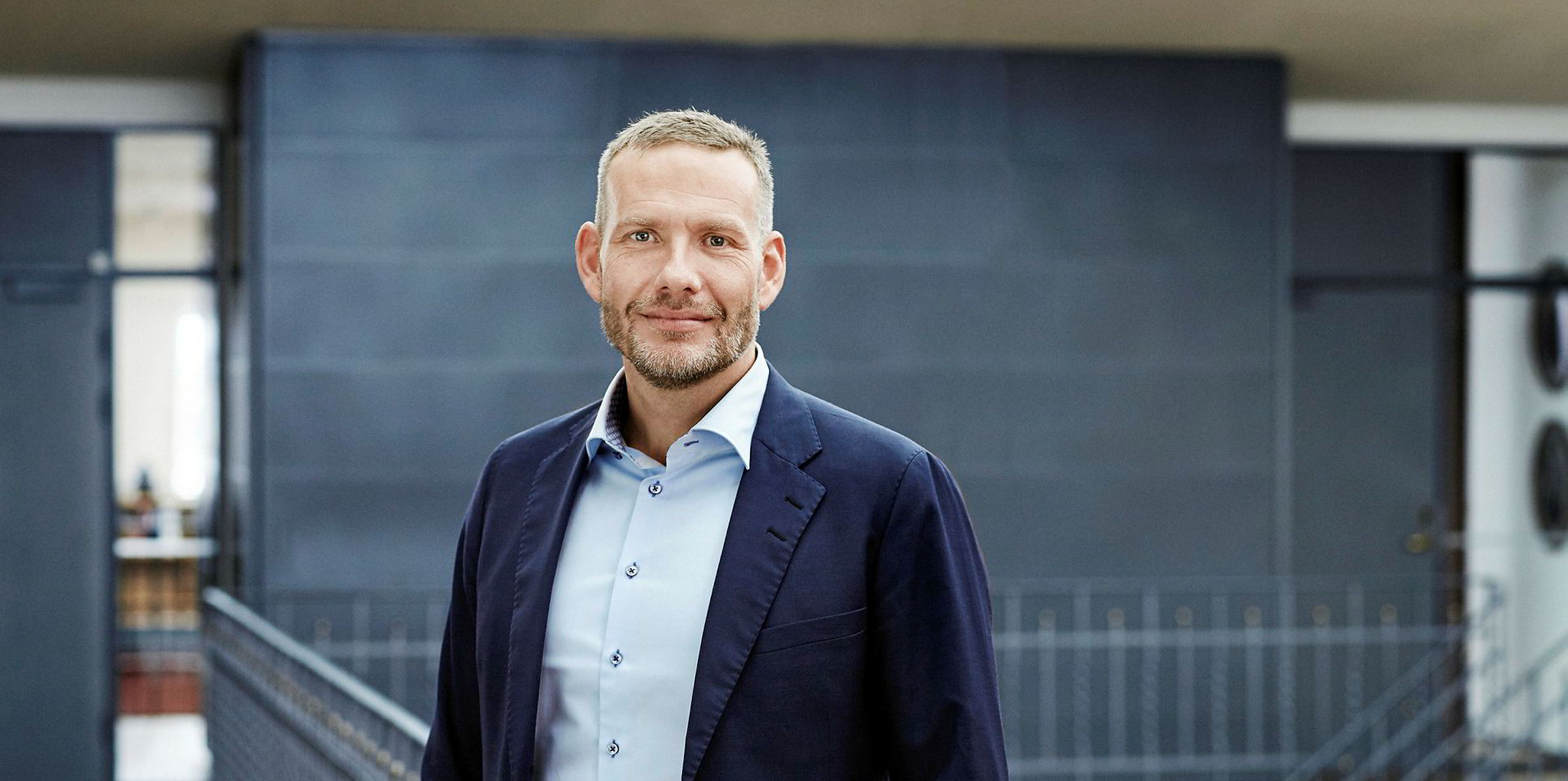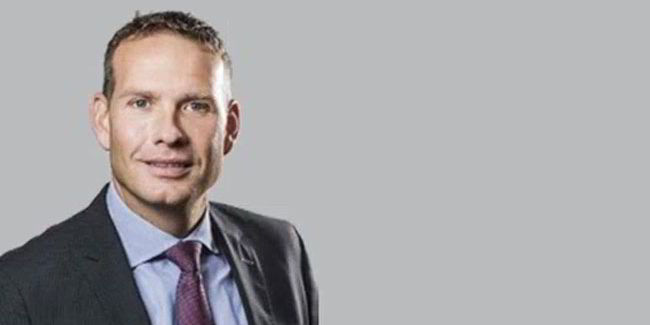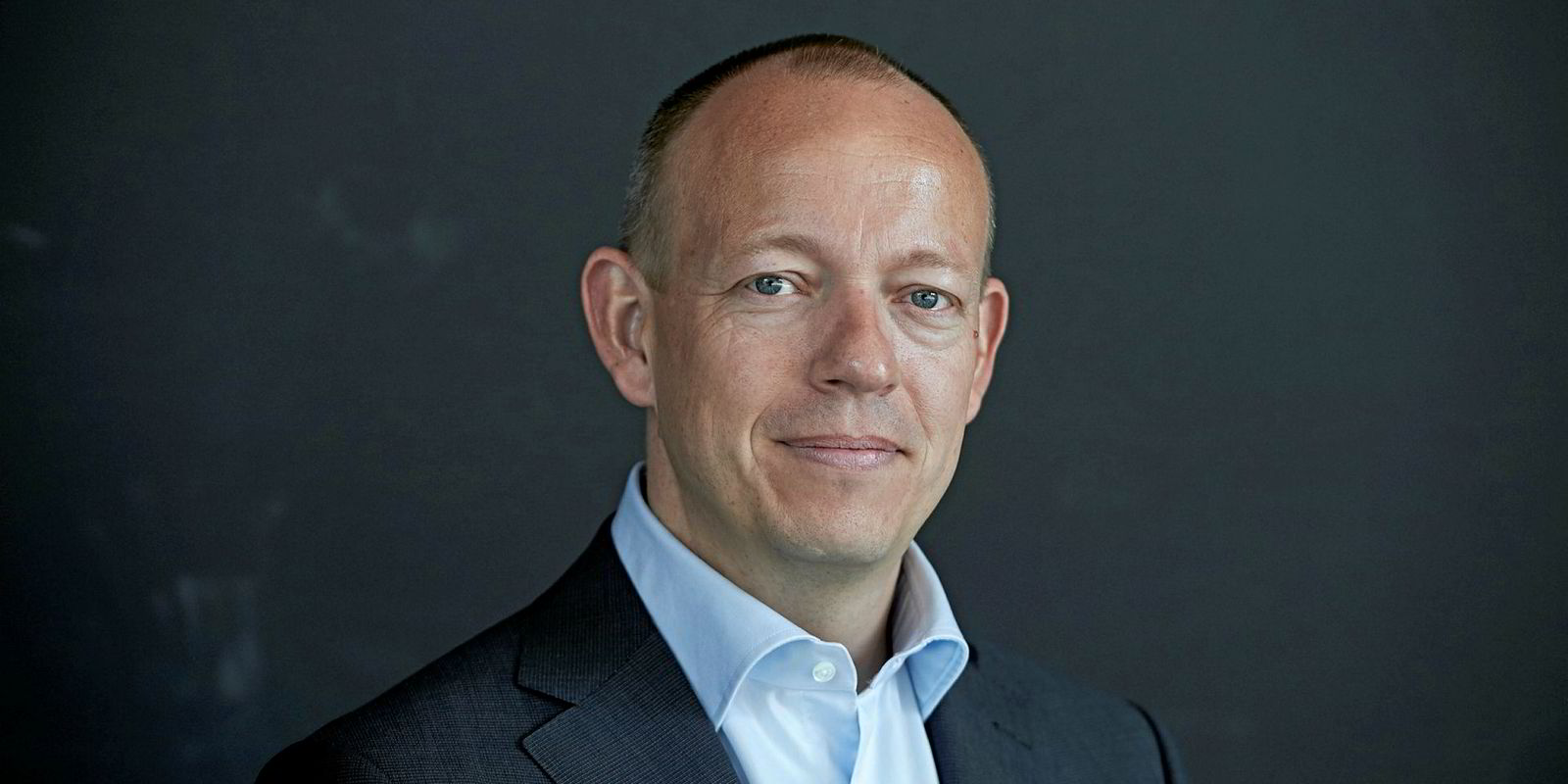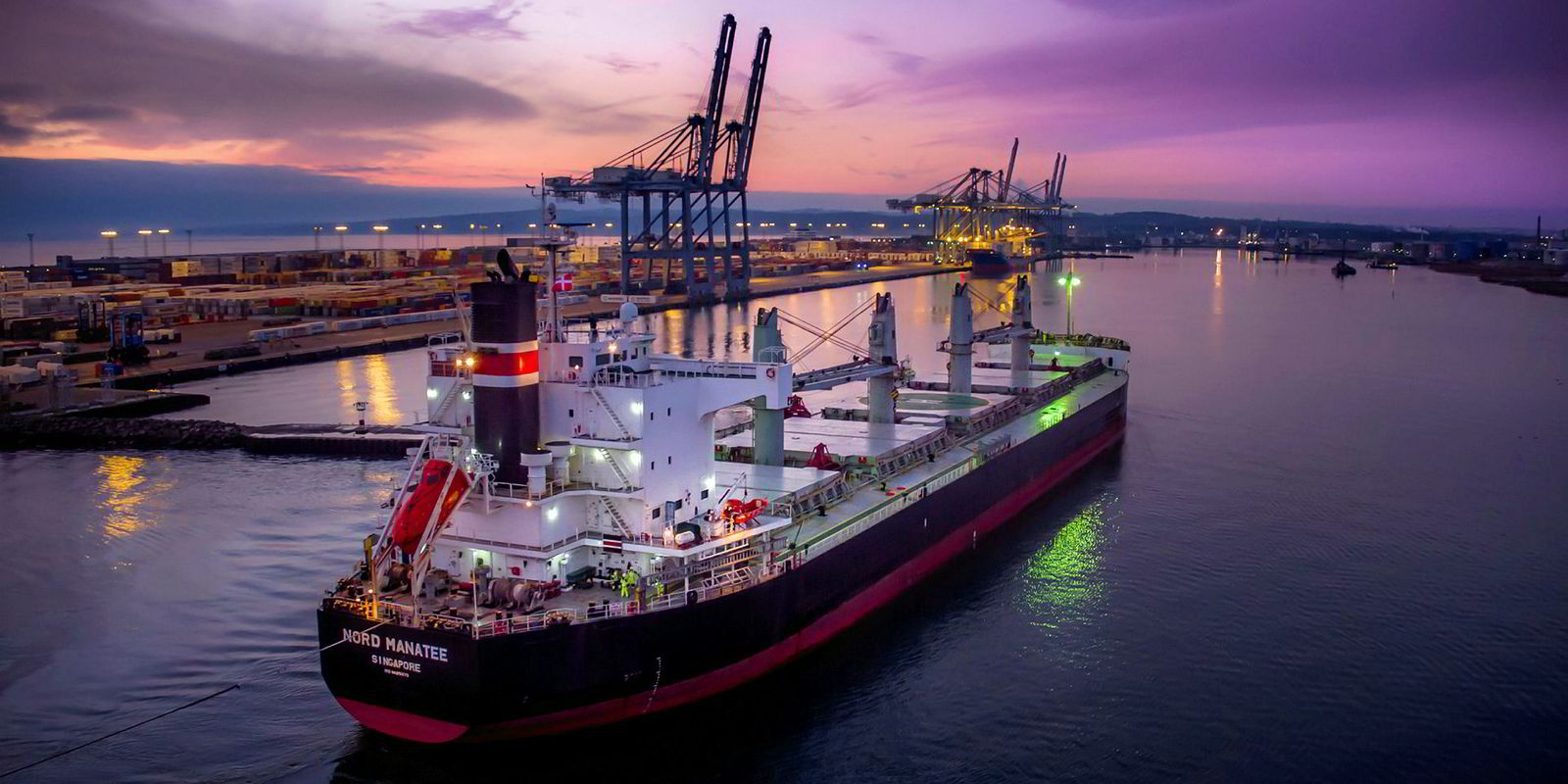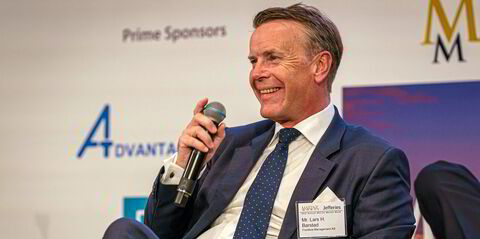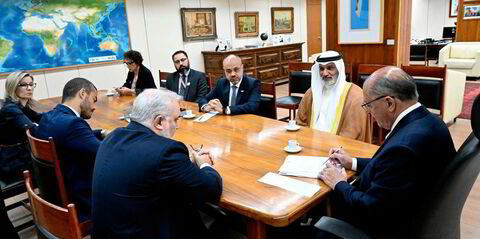Norden could double its bulker market share in the long term as part of the expansion of its dry operator business, a key executive says.
Dry cargo boss Christian Vinther Christensen sees opportunities linked to the IMO 2020 sulphur cap and is looking to grow the business by forming partnerships with dry cargo owners globally.
“Today, we have 2% to 3% of the world dry market,” he tells TradeWinds during an interview in London. “I don’t see any reason why we shouldn’t double that — not by 2020, but within a few years for sure. There is a lot to scale.”
Christensen, who joined Norden in late 2016, has been instrumental in reshaping the dry cargo division under chief executive Jan Rindbo’s “focus and simplicity” strategy.
Split in two
The Copenhagen-listed company’s dry cargo business was split in two in 2017, with the owner and operator arms now reporting separate financial results.
Today, Norden's dry operator division has around 250 ships, of which 75% are owned by third parties. Fixtures involving those vessels run to more than 1,000 per year, Christensen says.
The branch is already doing business with “several hundred” third-party shipowners, and he believes IMO 2020 could be a catalyst to increase that number.
“In a business you need partners — you need friends,” he says.
“We are shipowners ourselves and we treat that ship the same way we would treat our own. We also have fair operations. It’s very deep in Norden’s DNA, to be fair.
We have to be agile ... There is a lot of volatility and pitfalls in the market and we need to cater for that and turn things into opportunities
Christian Vinther Christensen
“I think owners need a charterer like us coming to IMO 2020 because, with all the scrubber talk, one thing is for sure: there are a lot of practicalities to be done — tanks that need to be cleaned, operations that need to be coordinated — which will lead to a lot of inefficiencies. Hopefully the owners will appreciate that. We know about these issues and these challenges, and we work together with our partners.”
Organisation flattened
Christensen says he has flattened the company’s organisation and commercialised it.
“We have fewer meetings, much less bureaucracy,” he says. “Very hands-on people and we have to move fast.”
This speed is important because, as a trader, the division is unaware what the market will do.
“We have to be agile and nimble,” he says. “Suddenly there may be a tweet here and an opportunity pops up there. There is a lot of volatility and pitfalls in the market, and we need to cater for that and turn things into opportunities.”
Norden broke a five-year losing streak in 2017, helped by the dry operator business reporting an operating result of $14m in the fourth quarter. In the four quarters to the end of September 2018, its aggregate adjusted result stood at $27m.
Rindbo has spoken of the dry operator business being the likely source of growth for the company in the dry cargo market.
Big challenge
“It’s been a big challenge,” he says. “In my mind, the engines have been started. We have eight different P&Ls [profit and losses] and they are running within a strict risk-management framework.
"To me, it’s an unstoppable engine because we have set it up in a way that each of these units is so close to the clients and so close to the results. Operations and chartering sit together, which is important for us because our cargo clients want one product.”
Norden has strong links in the Japanese market. However, while Christensen aims to explore Japan for more business, he is also looking further afield.
“There are more than one billion people in China,” he says. “There are more than one billion people in India. We have nine offices around the world, so growth will happen outside Copenhagen.”
